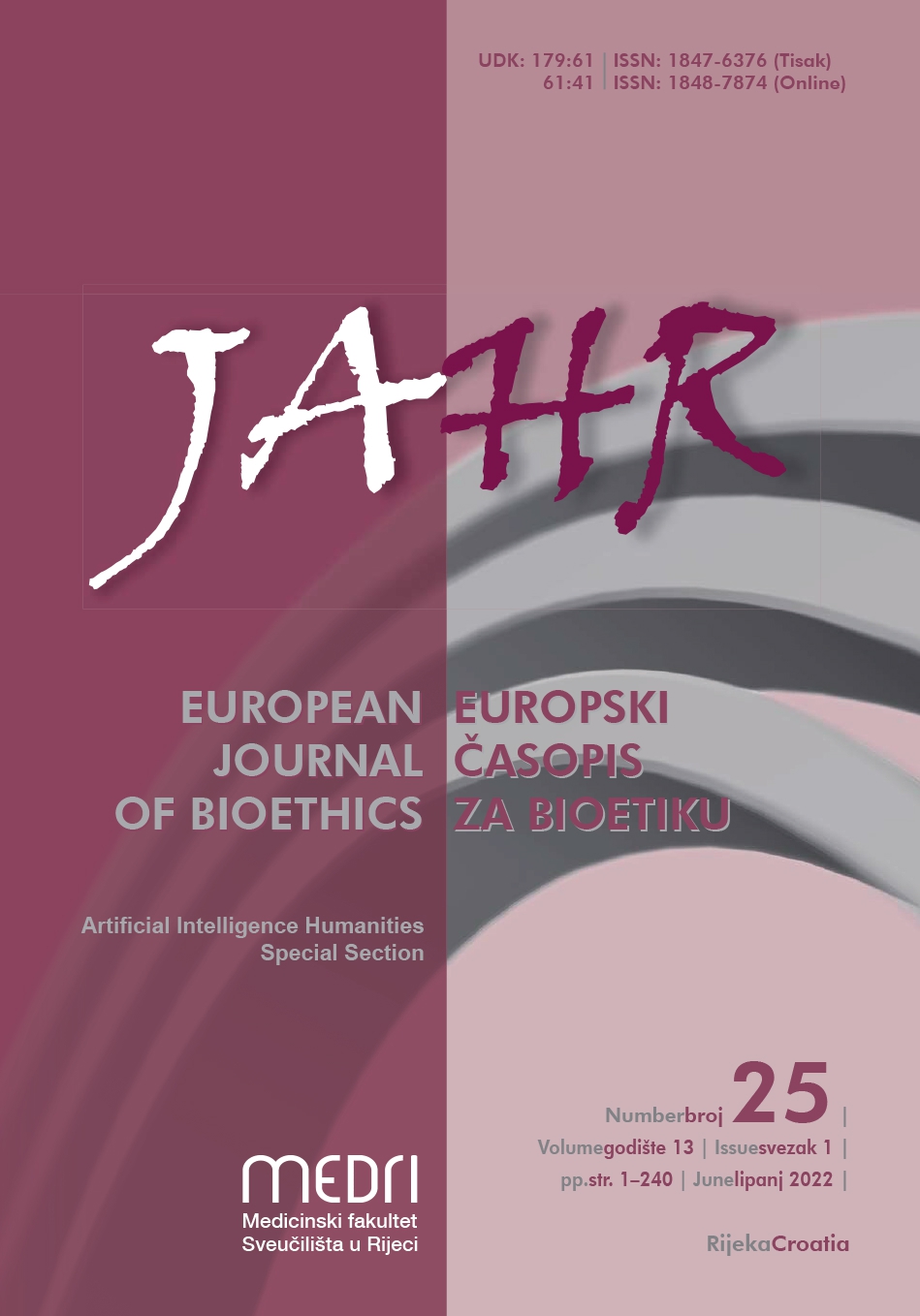Cosmic education in the context of integrative bioethics
Keywords:
bioethical sensibility, cosmic education, Maria Montessori, Montessori method, integrative bioethicsAbstract
https://doi.org/10.21860/j.13.1.4
The founder of the Montessori method and philosophy, Maria Montessori, developed within it the so-called Cosmic Education which is considered a central part of her teaching. Cosmic education originated in the difficult times of human history as hope and answer for a better future for humanity and is based on an understanding of the interconnectedness of humanity with nature and all living and non-living worlds. At the centre of Cosmic Education, as well as at the centre of the entire Montessori method, is a child who needs to be taught the responsibilities of his actions toward the planet and all living beings in order for the human being to fulfil the cosmic task assigned to each of us. The path to the realization of the cosmic task, among other things, consists of the so-called great (cosmic) stories that are told to young children as a basis for understanding the functioning of the world and motivation for further learning and research. The goals and objectives of Montessori Cosmic Education correspond to the goals of integrative bioethics, which is manifested through a common desire to respond to critical problems of humanity and the planet such as climate change, endangerment of flora and fauna and the very threat of human existence in the future. The article will present the basic ideas of cosmic education as conceived by Maria Montessori and compare cosmic education with bioethical sensibility.
Downloads
Published
Issue
Section
License
Authors who publish with this journal agree to the following terms:
- Authors retain copyright and grant the journal right of first publication with the work simultaneously licensed under a Creative Commons Attribution License that allows others to share the work with an acknowledgement of the work's authorship and initial publication in this journal.
- Authors are able to enter into separate, additional contractual arrangements for the non-exclusive distribution of the journal's published version of the work (e.g., post it to an institutional repository or publish it in a book), with an acknowledgement of its initial publication in this journal.
- Authors are permitted and encouraged to post their work online (e.g., in institutional repositories or on their website) prior to and during the submission process, as it can lead to productive exchanges, as well as earlier and greater citation of published work (See The Effect of Open Access).



